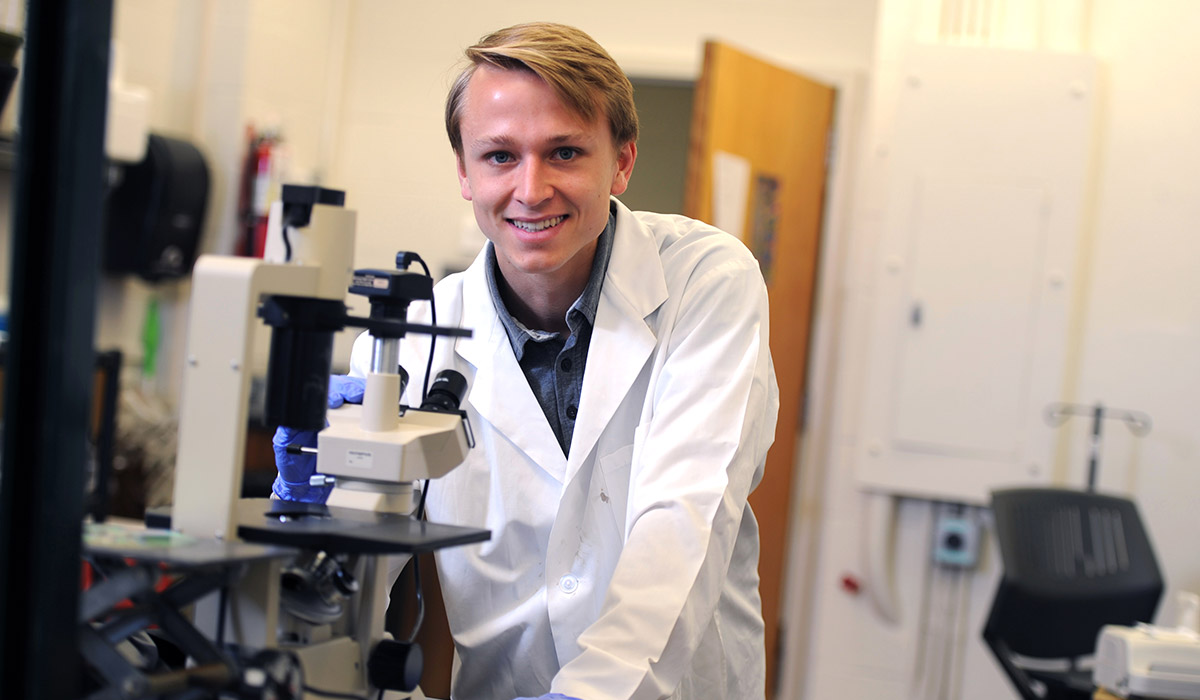

It’s a Monday morning and senior Tyler Zimmerman is hard at work in a Pangborn Hall lab. Using microscopy, Zimmerman is taking images of highly-invasive breast cancer cells, studying how they move through three-dimensional collagen constructs simulating tumor tissues.
The research is a collaboration between the biomedical engineering department of the School of Engineering and the Department of Biology. Zimmerman is working under the mentorship of Chris Raub, assistant professor of biomedical engineering, and graduate student Van Lam. Their research could provide valuable new insights into the process of cancer metastasis, as well as potential new anti-tumor therapies.
A biomedical engineering major, Zimmerman volunteers in the lab once a week to learn more about tissue engineering. After graduation, he hopes to find a job in the field.
“I’m learning a lot through this,” Zimmerman said. “This seems to have a very promising future because while drug therapy can try and fix different problems for people, if we could engineer different tissues or organs, you could replace them completely, which would be a much more effective way of treating a disease.”
According to Raub, the involvement of undergraduate students in cutting-edge research projects is mutually beneficial for both students and the University.
“Making research highly accessible to undergraduates helps students in their future careers, and I believe this fits well into CUA’s mission,” he said.
Working in Raub’s lab is not the only research Zimmerman has been a part of during his time at Catholic University. Previously, Zimmerman held internships at United Therapeutics, a pharmaceutical company in North Carolina, and the National Institutes of Health in Bethesda, MD.
Zimmerman chose to study biomedical engineering because it combines math and science in a way that helps others. With the support of Catholic University’s engineering school, Zimmerman has learned how scientific research can tie into his Catholic faith by helping him meet the health needs of those around him.
And thanks to the school’s dual degree program, Zimmerman can start that work even sooner. Because he opted to take additional classes each semester, he will graduate this May with both his bachelor’s and master’s degrees.
“I like being able to use engineering and science concepts to make a meaningful impact on the world,” Zimmerman said. “This is a way to use my Catholic education in the sciences to promote learning and health advancements for the good of society.”